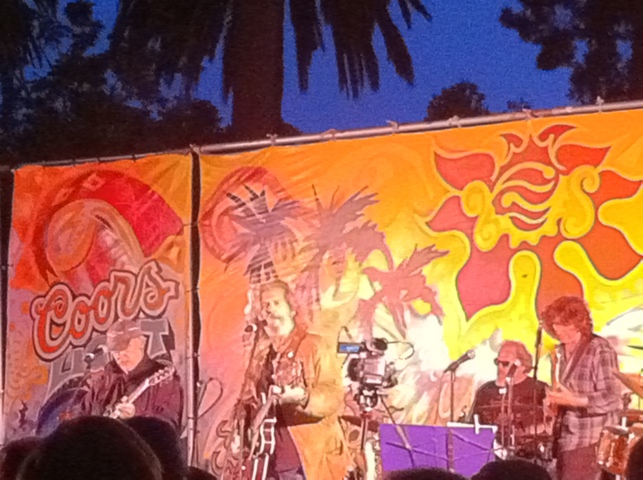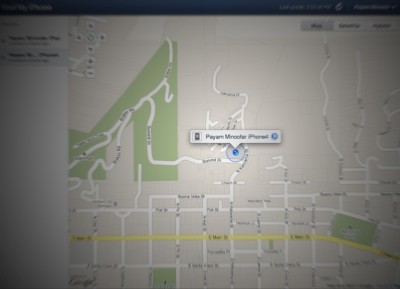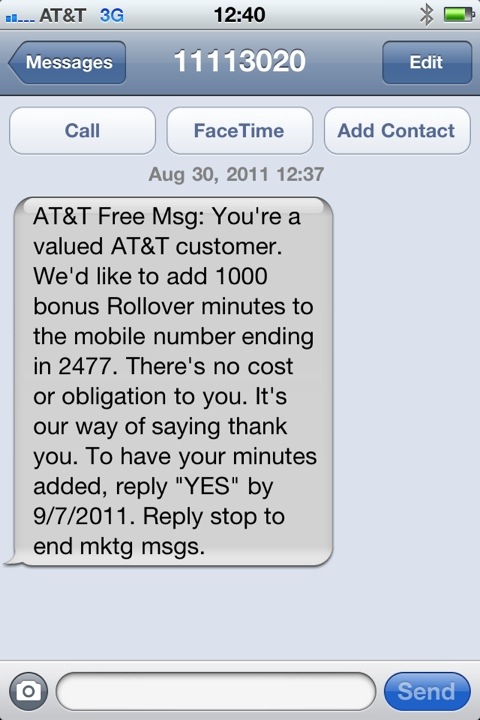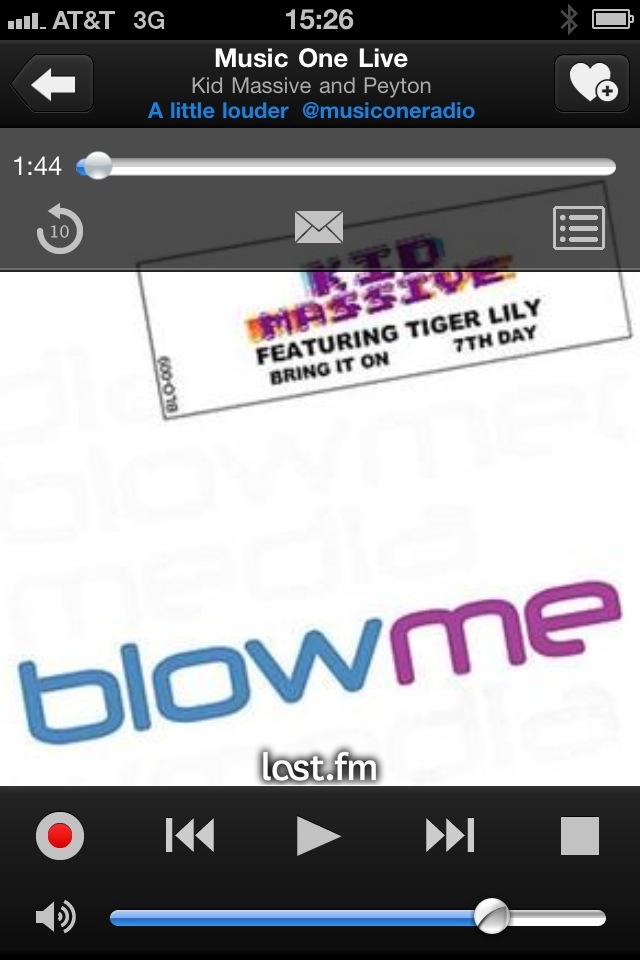For the last 90 minutes this woman had me alternately crying and laughing. Lessons in perseverance, persistence and love.
Being Green in Death
BBC News – New body ‘liquefaction’ unit unveiled in Florida funeral home
A Scottish company has refined–revived, if we want to be sarcastic–an old method for disposing of corpses: dissolving them in caustic solution. Why? They claim that this method of disposing of the deceased has a smaller carbon footprint than the infernal flames of cremation. It’s a claim that is hard to believe and even more difficult to digest or to undertake, as it were.Â
Once the corpse has been liquified, what will they do with it? Flush it down the toilet? Feed it to plants? The former would be a desirable means for survivors who hate you to exact a form of revenge. The latter actually sounds like fun. I wouldn’t mind becoming fertilizer in death. It might be my only act of creating life.
Adding to the iPhone 5 Rumor Mill
About an hour ago I received this text message from AT&T. The iPhone 5 rumor mill is working at fever pitch, and the timing of this offer seems coincide ominously with the rumored release of the iPhone 5 in September.
The nature of the offer seems to imply that the new iPhone plans will be cheaper and available from all carriers. Why else would AT&T be offering me free minutes as a “valued customer”?
What vexes me, however, is that I would rather have more text messages. I have thousands of rollover minutes. It is text messages that I usually run out of. Why aren’t they offering me free text messages?
Oh, yeah, because they don’t care. If they did they would have offered something of value to me. This lack of attention to detail may well explain why their customers move away at first opportunity, and I may do the same when my contract expires.
To be sure, I will accept the minutes. I’ll even try to use them. Anyone wanna call me?
Rude iPhone
My Dinner with Bjorn Borg
Who would have thought that of all the celebrities I could have run into this last Thursday night that I would have run into Bjorn Borg. The tennis great looks absolutely fabulous at 55. He is still spry, in fantastic spirits and astonishingly active intellectually. All of these attributes are remarkable for a 55-year-old former tennis champion who has gone through considerable trials and tribulations over the course of a very eventful life.
Of particular and perhaps peculiar note were his amazing insights into identity, memory and technology. These are among the last things that one would be inclined to associate with tennis champions. His insights were particularly keen with respect to the way in which the digital age is shaping identity. I was taken aback by his pointed and novel arguments about how a careful cataloguing of one’s digital “presence” might possibly lead to insights into one’s own identity. The thought had never occurred to me, and I was quite struck by the depth of this tennis great’s intellect. He was indeed quite keen of mind.
At some point I seized upon the fact that it was happy hour at Eric Ericsson’s on the Ventura pier, and that the deft participant in this conversation was none other than my dear friend Pete Ippel, the great promulgator of hypermodernity and other germane concepts. The caricature sketched above doesn’t stray too far from Pete’s story. He was a remarkable athlete in college who set records at his alma mater, and he has since been a tireless chronicler of the effect of technology on social and individual psyches alike, a courageous subject for his own works and the works of his friends, and a fearless journeyman and teacher in the real of modern art.
In light of this career track–of Pete’s supreme performance as an athlete, a philosopher and an artist–it occurred to me that he ought to be called Bjorn Borges. Jorge Luis Borges’s classic works on human existence have earned the adoration of generations and the unending accolades of writers, physicists and philosophers. Pete and I are huge fans of Borges, and Pete’s inquiries overlap Borges’s considerably. So, what better a moniker can one possibly assign to a great artist whose visceral experiences as an athlete are as prominent as his abstract notions about identity and existence than Bjorn Borges.
Now, there is a guy who can keep himself entertained for lifetimes on end.
Whatever that means.
The Dude Sings Country
Jeff Bridges is cashing in on his fame by releasing an album, and he started promoting the album by anchoring the first night of music at the Santa Barbara Summer Solstice Fest. “Is that the dude?” was my reaction, and it must have been everyone else’s, too. He didn’t shy away from that expectation.
He asked if people liked the dude before singing some song from The Big Lebowki’s soundtrack. He looked the dude, he sounded like the dude, and he acted like the dude. It was almost as if he was the dude. Was he the dude before the movie, or was he transformed by the iconic character from which the spectacular response from popular culture left no escape.

Or was it that the audience could see nobody except the dude?
Either way, jt was a surreal experience. As usual, he is a celebrity fortunate enough to have had the backing of an amazing band, next to whom he could only shine as the dude and not a performer endowed with any special or extraordinary musical talent.
It was a good performance, nevertheless. The dude gave a good show. I still would have preferred a killer dj house set or a tight jazz band, but this is Santa Barbara, and the least common denominator persists as the dominant factor in guiding musical selection for the masses.
Apple’s Jabs at Windows
I play a trick the neighbor who likes to filch my wifi connection. I leave my connection open for five minutes Monday mornings. This neighbor’s computer got registered on my network the last time s/he logged on to my wifi network, and naturally it showed up on my Mac as a computer on the network. That’s when I noticed the icon that Apple uses to distinguish Windows computers on the network. It’s the blue screen of death!

Of course, Macs are often susceptible to the spinning beach ball of death, and Windows 7 may arguably be more stable than Apple’s OS 10.6, Snow Leopard. Nevertheless, it’s funny to see these little jabs in OS X.
On Android and iPhone Geo-Tracking
There has been a lot of noise made about the fact that iPhones (and, apparently, Android phones) compile lists (caches, as programmers call them) of the locations where you have visited. This has raised the ire of many people for good reason and for not. People are legitimately concerned that private data about their day-to-day routines may be used for as yet unknown purposes. What has been lost in the discussion, however, is the  fact that we choose to use countless apps that employ our geographic location to deliver added convenience or even security, and compiling such lists of geographical coordinates is necessary for many of these programs to work properly.
For example, take Apple’s Find My iPhone service, pictured below. It is free to all iPhone 4 and iPad owners. When one subscribes to it, one has the ability to log on to an Apple web site, see the exact location of the device on a Google Maps map, and issue warnings (such as “Please return my phone to the police, or I’ll tell them where to find you.”) to the screen. One can even remotely lock the device to make it inoperable, or even to wipe it out completely from this web page. Of course, if your device is stolen, having a history of where it has been since it left your possession will be very useful to you. Similarly, it is highly likely that one is implicitly authorizing the Yelp and Google apps to track one’s movements in order to deliver the personalized service we have come to regard and to covet as astonishingly cool.

Of course, apps that are aware of your geographical location inevitably contain bugs. Developers will, therefore, have much interest in knowing if failure of the app was the result of any factors resulting from the location. (Was it the software that failed, or a local transmitter that was handling the transaction?) Hence, given how software works, geo-caching is an inherent side effect of the conveniences we demand. Apple’s comments on the 4.3.3 iOS update released today confirms this. The latest update does not get rid of the geographical location caches that the apps demand. Rather, it makes these caches more ephemeral:
This update contains changes to the iOS crowd-sourced location database cache including:
- Reduces the size of the cache
- No longer backs the cache up to iTunes
- Deletes the cache entirely when Location Services is turned off
Naturally, if any of the data are being used for purposes for which the end user had not provided explicit consent, then Apple and Google should pay a heavy price. Such a price would be bittersweet for me because I own both Apple stock and an iPhone 4.
It is positively unfortunate, however, that everybody is screaming bloody murder without pointing a finger at the consumers who are completely unaware of how software works, who possess no desire to learn of the pitfalls of complex software, who cannot quite fathom what it means when they tell an app on their iPhone that it’s ok for that app to use their geographical location, and who refuse to entrust the government to devise regulations that protect their interests until something like this happens. A little bit of awareness would go a very long way.
If you’re curious, yes, I just upgraded both my iPad and iPhone operating systems to iOS 4.3.3. I’m hoping that some critical fixes to the very lousy iOS 4.3.1 and 4.3.2 are in this package, too.
Long Phallus Dropped from Short List
Freudian Art Rejected in Russia
I happened upon this article in the Oddly Enough section of Reuters on my Reuters Newspro iPad App some time ago. Unfortuantely, the hilarious picture that was included in the iPad app is missing from the archived article. So, allow me to describe it!
It was a penis painted on one half of the draw bridge such that it became “erected” whenever the drawbridge lifted. This is the only picture I could find from this article after doing a Google image search.

Without a doubt, it took a lot of balls to erect this work of art. Those underground Russian graffiti artists deserve a lot of praise.
There is more about this “phenomenon” here.
Angry Birds
This episode is far more entertaining than the game, frankly. On one of my recent daily walks at work, I encountered this scene which I captured faithfully with the iPhone 4.
This bird was itching for a fight, for sure! He was battling his image for hours, it seemed.





